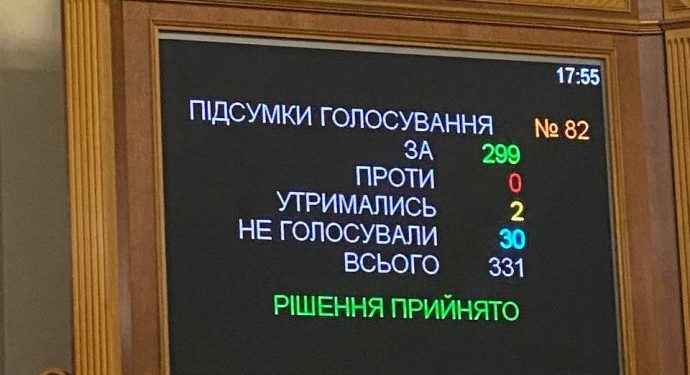On March 31, 2023, the Law of Ukraine 2849-IX On Media took force, which causes an ambiguous perception in the media community.
Secretary of the National Union of Journalists of Ukraine (NUJU)/editor-in-chief of the Obrii Iziumshchyny newspaper Kostiantyn Hryhorenko shares his thoughts on this law:
“Personally, I was a consistent opponent of adopting the On Media law as it was adopted. And today, I haven’t changed my mind.
I see no printed editions in this law. When they refer to some demands of the Europeans regarding printed publications, the lawmakers are telling the truth: the Europeans have not set any new demands. All the commitments regarding the print press we made in 2005 were fulfilled as early as 2018 when the laws on reforming and denationalizing print media from state and communal forms of ownership were adopted.
Firstly, there are elements of corruption, that is, the lawmakers lobbied for their personal interests: there is an increase in funding, there will be the development of states, and so on. I believe that the lawmakers, who joined state bodies, should resign.
Secondly, I believe community broadcasting is a utopia invented by the National Media Association. It is claimed that one hundred communal television and radio companies will turn into community broadcasting. But the mass media market is thus unbalanced because some of them – TV and radio companies – receive targeted funding from local and state budgets, while others – printed publications – are sent to free float. This does not happen in civilized countries; the criteria must be the same for everyone.
I think that community broadcasting will not work. And where it will work, then – remember my words – it will be the pocket TV and radio companies of mayors and various other power structures after a while. When they have been allowed to be funded by all levels of budgets, the media cannot be independent.
And the third. During the discussion of the bill, I did not support the thesis about co-regulation. Indeed, such experience exists in European countries, but these countries are among the top five countries with a high level of freedom of speech: Denmark, Norway, and others. In Ukraine, this co-regulation will be regulated by the state. I don’t want to offend anyone, but I will repeat – I think this will be a strict regulation.
We pay little attention to self-regulation in our industry. And this topic must be continued because self-regulation is the experience of many European countries and the experience of the United States, and this is the path that we in Ukraine must follow.
And in conclusion. When you read the text of the bill On Media and see how much space is devoted to the National Television and Radio Broadcasting Council and how many articles are devoted to print mass media, the thought arises: this is not a law about media; it is a law about the National Television and Radio Broadcasting Council. At least, I got that impression.
Today, few media workers had time to get acquainted with the original text of the On Media law, which the Verkhovna Rada of Ukraine adopted. Therefore, the NUJU should hold a discussion and training on implementing the law. Only independent experts and media lawyers should not be invited to the discussion.
In my opinion, the drafters of the On Media law cynically continue to master the grants, as they mastered them when the law was written. They are promoting their ideas for implementing this law during trainings and seminars. This law did not take into account or implement any proposal we made during the discussion on various platforms.
It’s worth paying attention to!”
Serhii Narodenko, the editor-in-chief of the Visnyk Ch newspaper (Chernihiv), notes:
“According to the On Media law, after April 1, we have two months to register with the National Television and Radio Broadcasting Council, but only if the National Council has time to develop the appropriate registration form. This process must be carefully followed because the closure of the publication can be carried out without a court decision.”
NUJU First Secretary, Lina Kushch, attracts the attention of the editors to the following aspect:
“There are contradictions in the Law On Media: in one part, it is stated that print media have a year to re-register, and in another part, it is written that print media must register within two months after the declaration of martial law.”
Olha Voitsekhivska, Journalist of Ukraine

 THE NATIONAL UNION OF
JOURNALISTS OF UKRAINE
THE NATIONAL UNION OF
JOURNALISTS OF UKRAINE
















Discussion about this post